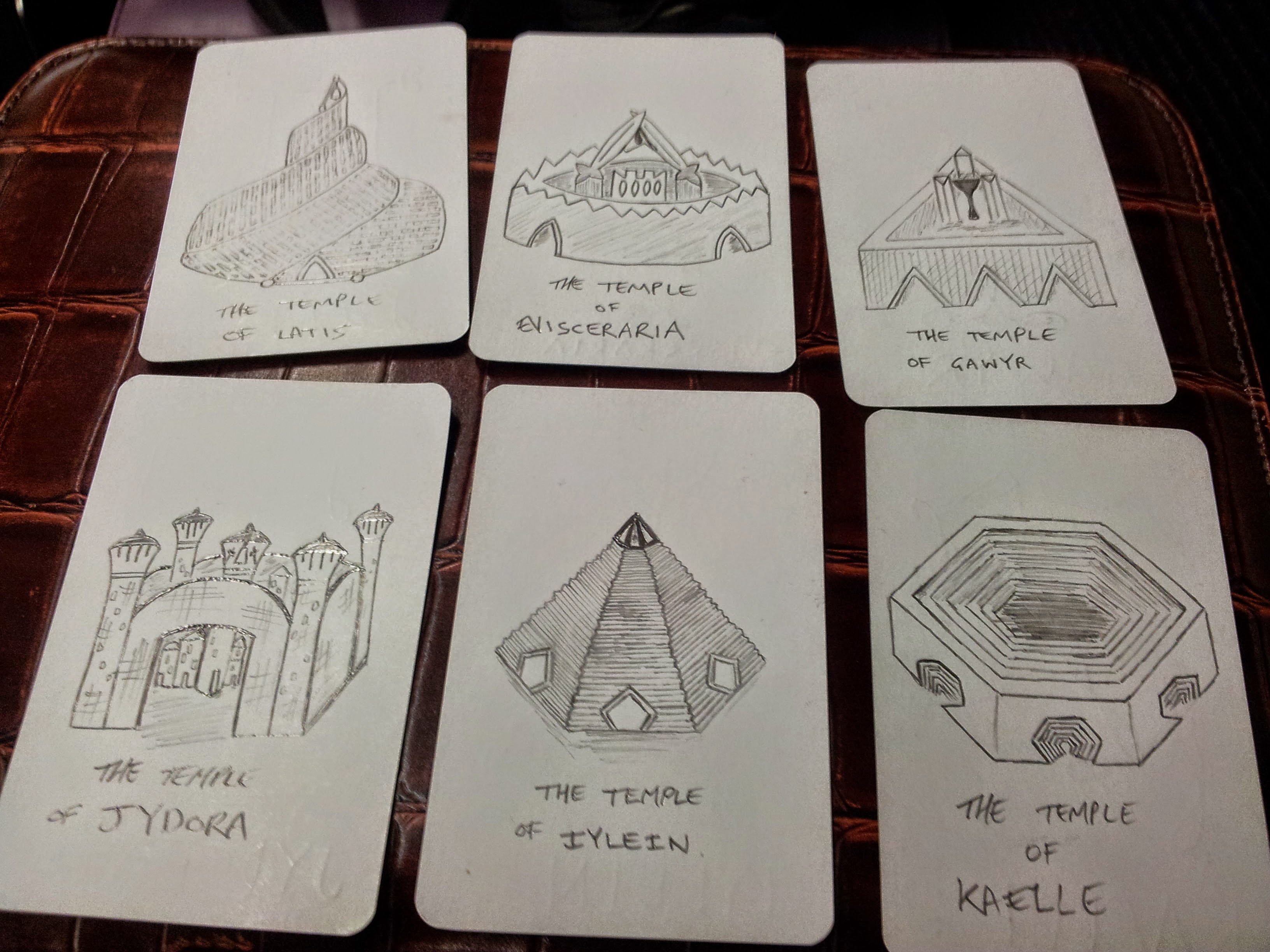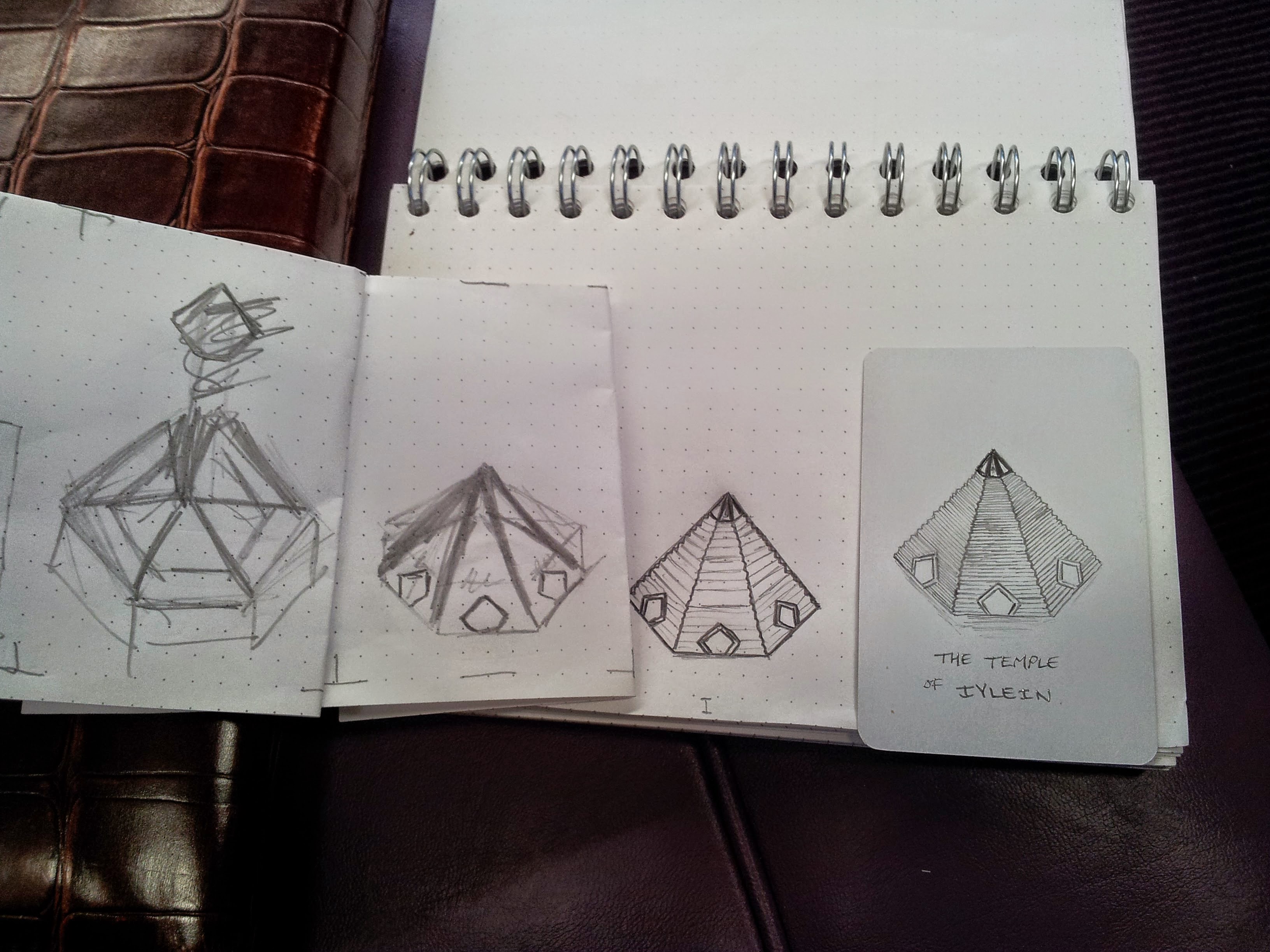A summary of the first session of a short-form (one hour session) Dungeon World campaign.
A summary of the first session of a short-form (one hour session) Dungeon World campaign.
The city is alternatively known as the Crescent or the Sickle, named after the thousand-foot-high wall that sweeps along its western edge. The wall serves as a bulwark against the seasonal storms that blow sand at flesh-scouring speeds. The southern edge of the city abuts a mountain range, and mining is the primary source of the city’s riches. A significant portion of the miners are foreigners, and they stick together in their own neighborhoods near the wall.
The gates have just been closed for the last time this year, as the weather signs show the first of the truly lethal storms approaching. In a miner bar, Lukas Grimdog (Human Paladin, from the same foreign nation as the miners mentioned above) and Jonah (Human Ranger, a horseman from the wastelands west of the Wall) are drinking the last of their seasonal wages. Storm season is a tense time amongst the miners, as only a few mines can stay open safely so work assignments are at a premium.
Jonah performs a brief augury using storm-blown sand and the dregs of his beer, which alerts him of the impending bar brawl behind Lukas. Rather than intervene, Lukas merely stands up and reminds the brawlers to keep it friendly – no weapons – and observes.
When the brawl breaks out, Jonah takes advantage of the chaos to attempt to steal some additional beer from unattended tables, but ends up spilling one of the mugs onto a rather large miner who (understandably) takes offense. Lukas becomes aware of Jonah’s problem when Jonah goes flying across the room into a table, but more worrisome is the miner who seems ready to retaliate for a broken nose by pulling a dagger.
Lukas’s boot on the dagger almost puts an end to that, but the miner isn’t terribly bright, and decides to sink a second dagger into Lukas’s leg. The armored leg. It doesn’t go well. Lukas is not the merciful sort, and stomps on the inside of the miner’s elbow, removing any will to fight. Meanwhile, Jonah has extricated himself from the wreckage of the table, and the two call it an evening and head back to their shithole apartment, that still has a few days of rent paid on it.
Jonah is up with the dawn, and becomes aware of a gathering mob in the streets below. He wakes Lukas, and the men set off to follow the crowd. The mob eventually coalesces around a Wall gate, where the maintenance cage is being lowered to the ground.
Inside the cage, flensed by the storm of the previous night, is the body of a miner named Harlan. Harlan was a known agitator and labor organizer, and the immediate suspicion of the crowd is that the mine owners were in some way responsible. Jonah begins back-tracking the path Harlan must have taken to the Wall, and Lukas moves to inspect the body. Lukas encounters a mine foreman named Andros, a man sympathetic to the labor movement but constrained by his position. He pleads with Lukas to keep his investigations subtle, and to bring him news so he can help mitigate the inevitable outrage. Lukas agrees, and after seeing the body respectfully removed from the area, rides up to the top of the Wall.
Jonah backtracks the course of last night’s events, and determines that Harlan was assaulted outside the very tavern they were drinking in, by at least two men. Harlan’s boots implied that he did not walk to the wall, but the fact that he turned his face away from the storm suggests he was conscious when he died.
Lukas reaches the top of the wall, the only place where the cages can be controlled from. He eventually finds the maintenance crew on duty, two young men who are clearly rattled. A clear sense of guilt from one of the maintenance men causes Lukas to dangle him out over the edge of the Wall, but the guilt was over being drunk on duty, as the two men arrived well after the storm and were the ones to discover the body. Lukas collects the most recent pages of the duty log, and heads back into the city to continue his investigation.


